US Group Calls For Congressional Investigation Over Iran Envoy
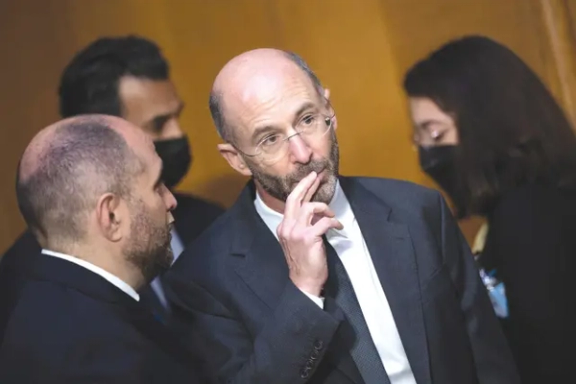
United Against Nuclear Iran, an advocacy group, has called for a Congressional investigation regarding lack of transparency by the White House over the suspension of US Iran envoy.

United Against Nuclear Iran, an advocacy group, has called for a Congressional investigation regarding lack of transparency by the White House over the suspension of US Iran envoy.
Robert Malley, who was appointed as Special US Envoy for Iran in early 2021 and conducted nuclear negotiations with Tehran has been suspended without pay, pending an investigation of his security clearance status.
“It is imperative that the Biden administration disclose how long it has withheld from Congress that consequential diplomatic engagements have been led by someone other than Mr. Malley and when the alleged mishandling of classified information took place, a statement issued Friday by UANI said.
Malley was apparently “on leave” at least since the beginning of May, but the administration never disclosed the real reason for his absence as it was holding indirect talks with Iran.
Malley was one of the architects of the controversial 2015 JCPOA nuclear deal with Iran and was also an advisor to President Barack Obama.
“Congress must investigate whether any misconduct colored Mr. Malley’s counsel to President Obama, President Biden, or both. Further, as a co-equal branch of government, Congress must insist that President Biden comply with federal law and afford it the opportunity to review and approve any agreement or so-called ‘understanding’ with the Islamic Republic over its nuclear program,” UANI added.
Many lawmakers in the US Senate and House of Representatives have voiced concern over reports about the Biden administration planning to make an interim and limited deal with Iran in unwritten form to avoid Congressional review.
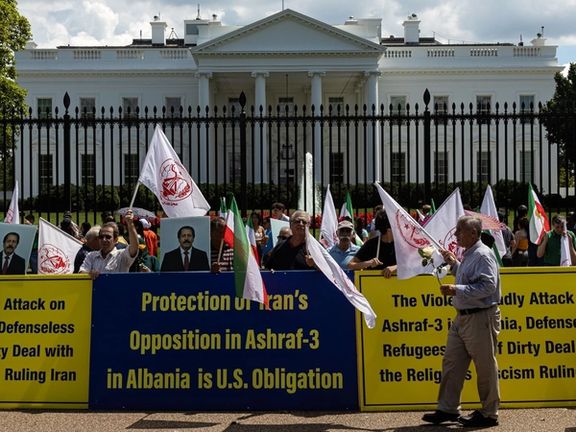
A Paris court on Friday reversed a decision by the French capital's police to ban an upcoming rally of an Iranian opposition group, the Mojahedin Khalq.
The court dismissed the police argument of the rally posing a risk of an attack, saying it interfered with the basic freedom to protest.
The ruling by the Paris administrative tribunal comes as police are fully stretched amid the worst riots seen across cities in France since 2005 sparked by the fatal police shooting of a teenager.
The Paris-based National Council of Resistance of Iran (NCRI), political arm of the People's Mujahideen Organization of Iran (PMOI), has held frequent rallies in the French capital over the years. They have attracted thousands of followers and are often attended by high profile former US, European and Arab officials critical of the Islamic Republic.
In a letter signed by Paris police chief on June 15 said it could not allow the protest because of security concerns.
That ban came just days after the release of an Iranian diplomat convicted of masterminding a plot to bomb the group in 2018 and as Western powers seek to defuse tensions with Iran.
The court said the ban "excessively violated the fundamental freedom to demonstrate". The rally will now take place near the French Foreign Ministry in central Paris on Saturday, for a limited period and be confined to one area. The protesters will also provide extra private security, the court said.
In a statement the NCRI welcomed the ruling, which it said denied Iran "the opportunity to exploit 'security concerns' under false pretenses in order to suppress democracy and freedom of expression."
Report by Reuters

Iran has rejected the voracity of a video released by Israel's spy agency Mossad of a captured IRGC agent caught before an attack on Jews and Israelis in Cyprus.
Nour News, affiliated to the Supreme National Security Council (SNSC), said in a tweet on Friday that the report was an effort to cover up Israel’s own domestic crisis, trying to cover up the shameful incident in which Mossad agents captured the assassin on Iranian soil.
The video of the captured agent was released on Thursday, in which the agent, identified as Yousef Shahabazi Abbasalilo, is filmed sharing details of his entry to Cyprus through the Turkish occupied north and how he had scoped out the location of the first target for assassination, prepared the weapon and concealed it on word that he must flee just days ago.
"The Zionist regime, which is (facing a) deterioration of its domestic situation, has narrated a failed operation from a year ago in Iran where all its agents were arrested in an upside-down manner," said Nour News.
Cypriot security forces dismantled the plot's infrastructure based on the information.
“We’ll get to every person that advances terrorism against Jews and Israelis all over the world, including on Iranian soil,” a senior Mossad official said.
Last year, Mossad captured a senior IRGC official on Iranian soil and interrogated him about weapons shipments to Iran's proxies.
This is the third time evidence emerges of Israeli agents detaining an IRGC operative inside Iran and taping confessions. A short audio recording was published by Israeli media in May last year with a photo of a man introduced as Iranian national Mansour Rasouli, 52.
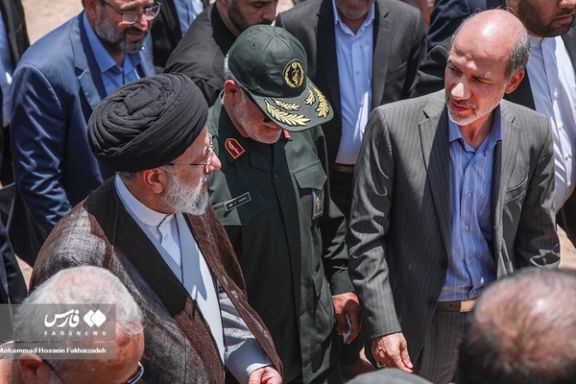
Ten thousand villages in Iran are without drinking water, with about 670 people in Kerman province facing “serious” water scarcity.
The Iranian energy minister Ali-Akbar Mehrabian, who is accompanying President Ebrahim Raisi in his trip to the central province of Kerman, made the remarks as residents of a large number of cities in the province are procuring water via water tankers stationed around the towns while the weather temperature is over 40 degrees Celsius (104 in Fahrenheit scale).
He claimed that the drinking water problem has been elevated in 3,000 villages and the issue will be resolved in the 10,000 remaining villages by the end of this Iranian year (March 19, 2024).
Iran has huge numbers of villages in remote rural areas who depend on support for survival. Although on decline, the rural population is roughly about 21 million people, a little less than a fourth of the country's population.
During his trip to the province, Raisi also inaugurated several water projects, which he promised would solve the problem in Kerman.
Water issues have been the main topic of Raisi’s visits to Iranian provinces in recent months, taking him to Sistan-Baluchestan and Khuzestan provinces that have very little clean water and temperature as high as 51 degrees (about 124 in Fahrenheit).
Earlier in June, the water was also out in the capital Tehran for several days with tankers distributing water to residents.
In January, CEO of Iran Water and Wastewater Company, Atabak Jafari, issued a warning saying that 270 cities and towns are suffering from acute water shortage as water levels at dams have dropped to critically low levels.
As drought persists across Iran, more underground water is exploited for irrigation, depleting natural reservoirs formed during thousands of years. Old and unregulated irrigation methods, as well as an aging urban water distribution infrastructure compound the shortage.
An inefficient agricultural sector, overgrazing of rangelands and forests, aggressive over-extraction of groundwater resources, and most importantly the regime’s mismanagement are among the main causes of water bankruptcy in Iran.
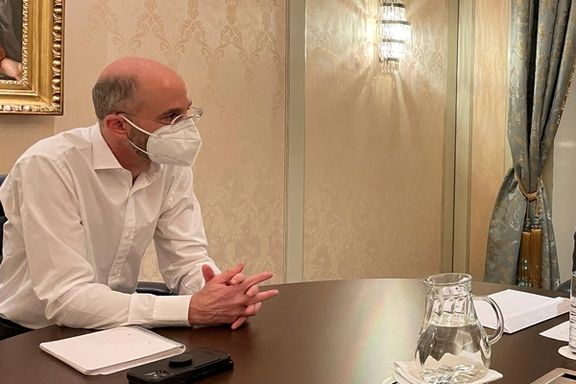
Since the saga of US envoy for Iran Robert Malley unfolded on Thursday, government officials in Tehran have remained silent, but others had plenty to say.
Iran International broke the news early Thursday afternoon in DC that Malley, the Biden administration’s point man in talks with Iran has been put on leave and his deputy is now in charge as acting Iran envoy.
Major US news outlets soon began reporting on the development and soon it became clear that Malley was put on “unpaid leave” the same day when Iran International was asking questions from the State Department about his long absence and review of his security clearance.
Iranian government news agency IRNA in a note tried to put a positive spin and claimed that Malley’s removal was perhaps necessary to facilitate an agreement. However, Malley was considered to be defender of compromise with the Islamic Republic, not an opponent of deals with Tehran.
Some Iran watchers and many Iranian activists opposed to the Islamic Republic had long questioned Malley’s appointment as special envoy, pointing out that he was biased in favor of the Iranian regime and had been one of the architects of the 2015 nuclear deal that many believed was a flawed deal.
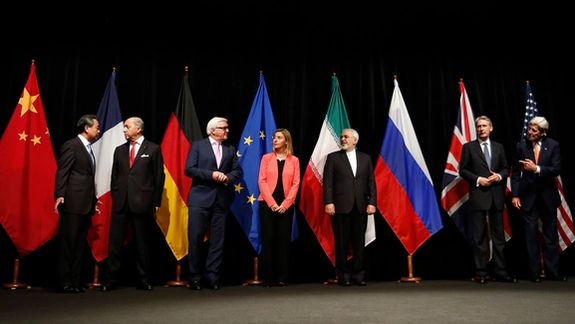
National Review quoted “a senior congressional foreign policy aide” who accused the Biden administration of lying about Malley’s status for months.
“They told Congress that Malley was on leave, because if they told the truth it would give away the game,” the aide was quoted as saying. “Malley has been dialoguing with Iran for years, refusing to enforce sanctions, letting Iran get within reach of nukes, attacking everyone who criticized Iranian terrorism — Europe, Saudi Arabia, Israel — and after all that something happened that got his security clearance suspended. So of course they lied.”
Amir-Farshad Ebrahimi, journalist and Senior Researcher at Global Institute for Democracy and Strategic Studies"(GIDSS), drew attention to Malley’s reported secret meetings with Iran’s UN ambassador Saeed Iravani late last year, first reported by Iran International in January. Ebrahimi wrote in a tweet that Israel showed a sharp reaction to the White House about these meetings and Malley’s “and Malley’s fate was sealed” at that time.
Alireza Namvar, a political analyst told Iran International TV that it is not clear if Malley’s security clearance is being reviewed for his contacts with Iranians or for mishandling secret documents, but in any case, he had not reached any success during his two years as special envoy.
Hormoz Sharifian a journalist and political editor in Tehran tweeted that Malley’s “removal shows to what extent Democrats ignore Iran’s national interests. This does not mean that Republicans care about our national interests. No! But Democrats’ track record on Iran is far darker and unforgiveable.” He then added the Persian hashtag Carter, for President Jimmy Carter, believed by many Iranians to have abandoned the last Iranian monarch Mohammad Reza Shah in 1978 before the Islamic revolution.
Hossein Aghaie, a security and geopolitics analyst told Iran International TV that Malley’s departure does not necessarily mean there would be a change in Biden’s Iran policy, although he was one of the main players in the Obama and Biden administrations’ “appeasement” policy toward Tehran.
Both administrations only cared about Iran’s nuclear issue, while the regime in Tehran poses a multi-faceted threat, Aghaie argued. He added that this is the reason why they never had an overall policy to confront complex, hybrid threats the regime poses.
Iranian human rights activist Lawdan Bazargan tweeted that “This is a big dishonor for the Biden administration’s negotiating team. Another important point is that Malley’s firing was one of the demands of the [Iranian] opposition that we finally achieved.”
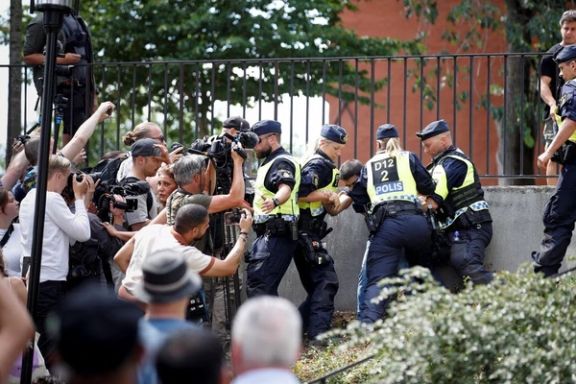
Iran’s foreign ministry has summoned Sweden’s charge d’affaires in Tehran over the burning of a copy of the Quran outside a mosque in Stockholm.
Condemning what Iran described as an insult to the most sacred Islamic sanctities, the ministry’s director-general for Western Europe summoned the diplomat on Thursday in the absence of Sweden's ambassador to Tehran.
“While Muslims are performing the Hajj, ... insulting their sanctities merely serves the path of spreading hatred and violence, exploiting the principle of freedom of expression,” read a statement by the ministry.
Two men publicly burned the Quran outside Stockholm's central mosque on Wednesday, an act approved by a Swedish court.
It was deliberately timed to coincide with the significant Muslim holiday, Eid al-Adha, further magnifying the incident's significance.
Some 200 onlookers witnessed one of the two protesters tearing up pages of a copy of the Quran and wiping his shoes with it before putting bacon in it and setting the book on fire, while the other spoke into a megaphone.
Several attendees shouted "God is Great" in Arabic to protest the burning, and one man was detained by police after he attempted to throw a rock.
Iran's Foreign Ministry Spokesperson Nasser Kanaani also condemned the Swedish government for permitting disrespect to the Muslim holy book on Thursday.
The act has led to protest rallies in several Muslim countries, with Iraqis holding a large demonstration outside the Swedish embassy in Baghdad.
Morocco also recalled its ambassador to Sweden late Wednesday to protest the desecration. Turkey’s foreign minister also criticized the move saying it is “unacceptable to allow anti-Islam protests in the name of freedom of expression”.
Burning religious texts is "disrespectful and hurtful", the deputy spokesperson for the US State Department told reporters in a daily briefing as well. "What might be legal is certainly not necessarily appropriate," Vedant Patel said.